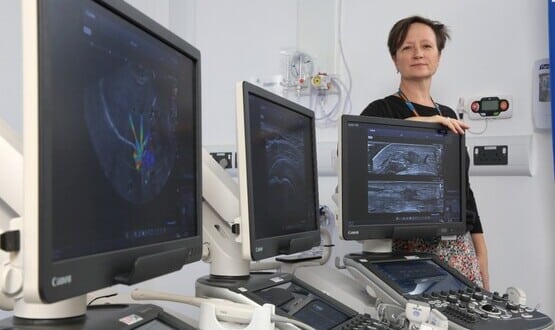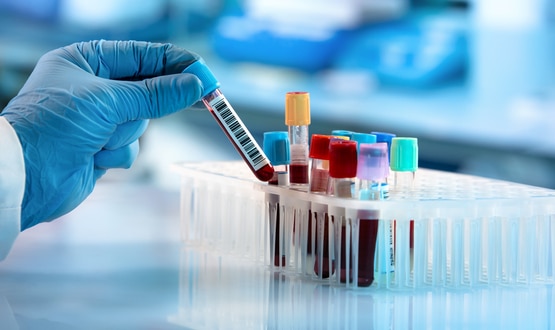NHS Nightingale boosts patient numbers with imaging tech from Canon
- 15 December 2023

NHS Nightingale Hospital Exeter has been able to support a 300% increase in patients thanks to its transformation into a diagnostic community hub and the installation of new medical imaging and diagnostic technology from Canon Medical Systems UK.
The transformation of the former Covid response unit has helped reduce the local NHS waiting list from six weeks to less than two weeks.
In May 2021, NHS Nightingale used a share of £11.3 million funding that was awarded by the National Accelerator Systems Programme to become a CDC and help tackle the backlog across the Royal Devon University Healthcare NHS Foundation Trust.
Key to its transformation was investment in the latest medical imaging and diagnostics technology. It is now equipped with Aplio i800 Prism Edition machines, which provide a high level of detail for precision scanning – particularly for gynaecological and musculoskeletal examinations.
The Canon Medical equipment is installed with advanced applications to support clinicians. This includes contrast enhanced ultrasound, shear wave elastography and superb micro-vascular imaging (SMI) to enhance image quality.
Jane Baker, principal sonographer at the NHS Nightingale, said; “Our long-standing relationship with Canon Medical Systems UK has enabled the hospital to implement a framework for continuous improvement through which the ultrasound team can effectively identify where efficiencies can be made for better patient care and staff working practices.
“We have already seen improved productivity, with faster examinations and more accurate diagnoses due to superb image quality. Patient feedback has also been positive with the speed of referral from the GP to an appointment being recognised by patients as ‘quick’ and ‘efficient’.”
NHS Nightingale’s ultrasound service department now has four outpatient scanning suites, in comparison to the original single ultrasound room it had. As a result, the CDC can serve three times as many patients. In August 2023 it saw 1,138 patients, compared to just 379 in August 2022.
The advanced technology is also supporting improved diagnostic confidence amongst the sonography team, leading to more efficient diagnoses and improved patient throughput.
The Community Diagnostic Centre (CDC) programme represents the largest central cash investment in MRI and CT scanning capacity in NHS history. It is helping to reduce patient waiting lists and increase positive patient outcomes by speeding up access to potentially lifesaving tests and checks.
There are currently 160 CDCs in action, with NHS Nightingale completing its transformation a year ahead of schedule. Another success story from the CDC programme was Northwich’s Victoria Infirmary CDC, which has freed up pressure on other acute hospital scanners in the region.



